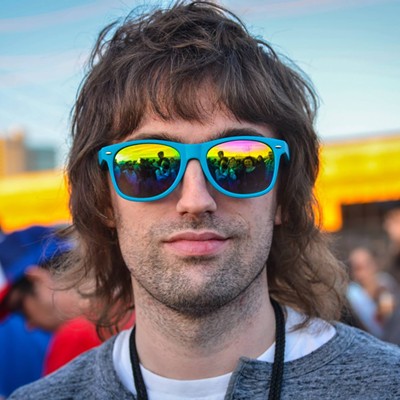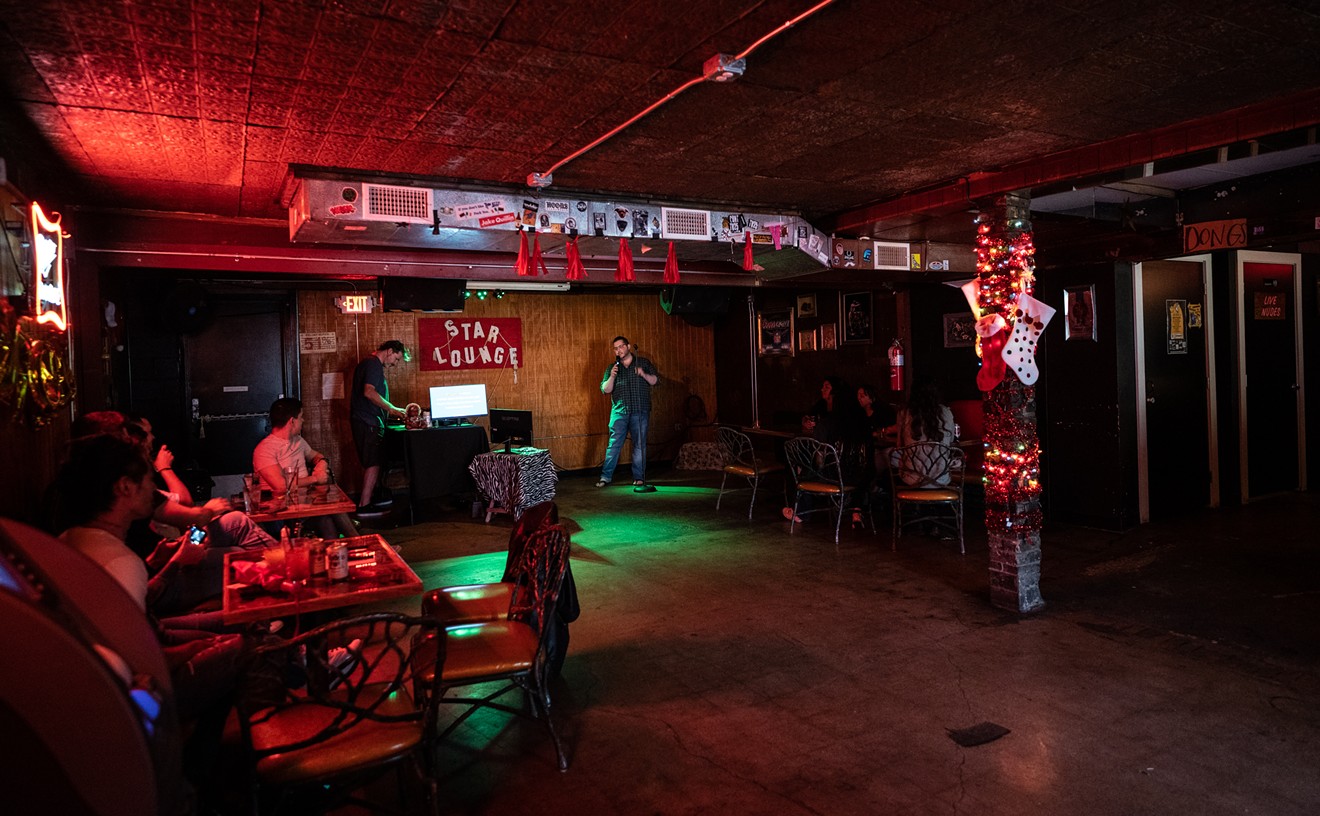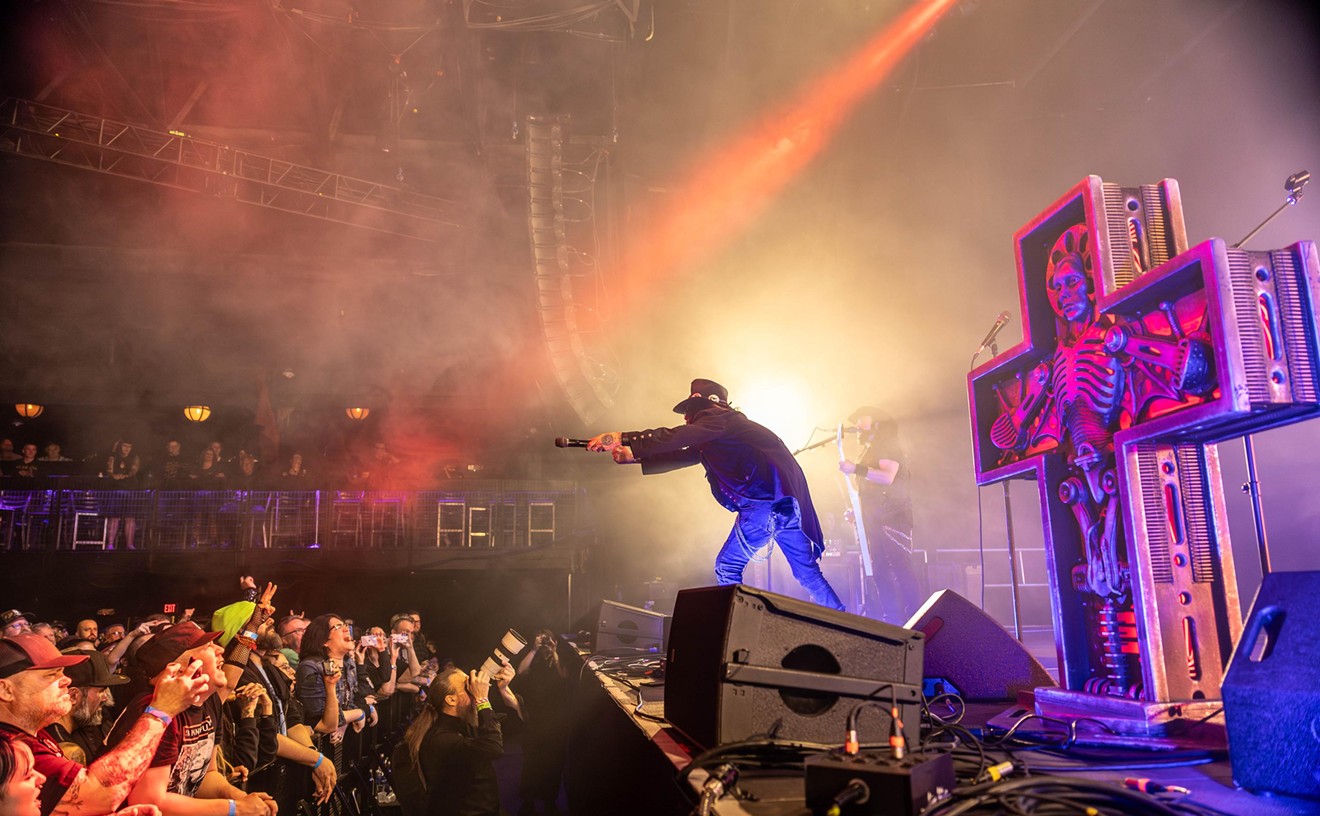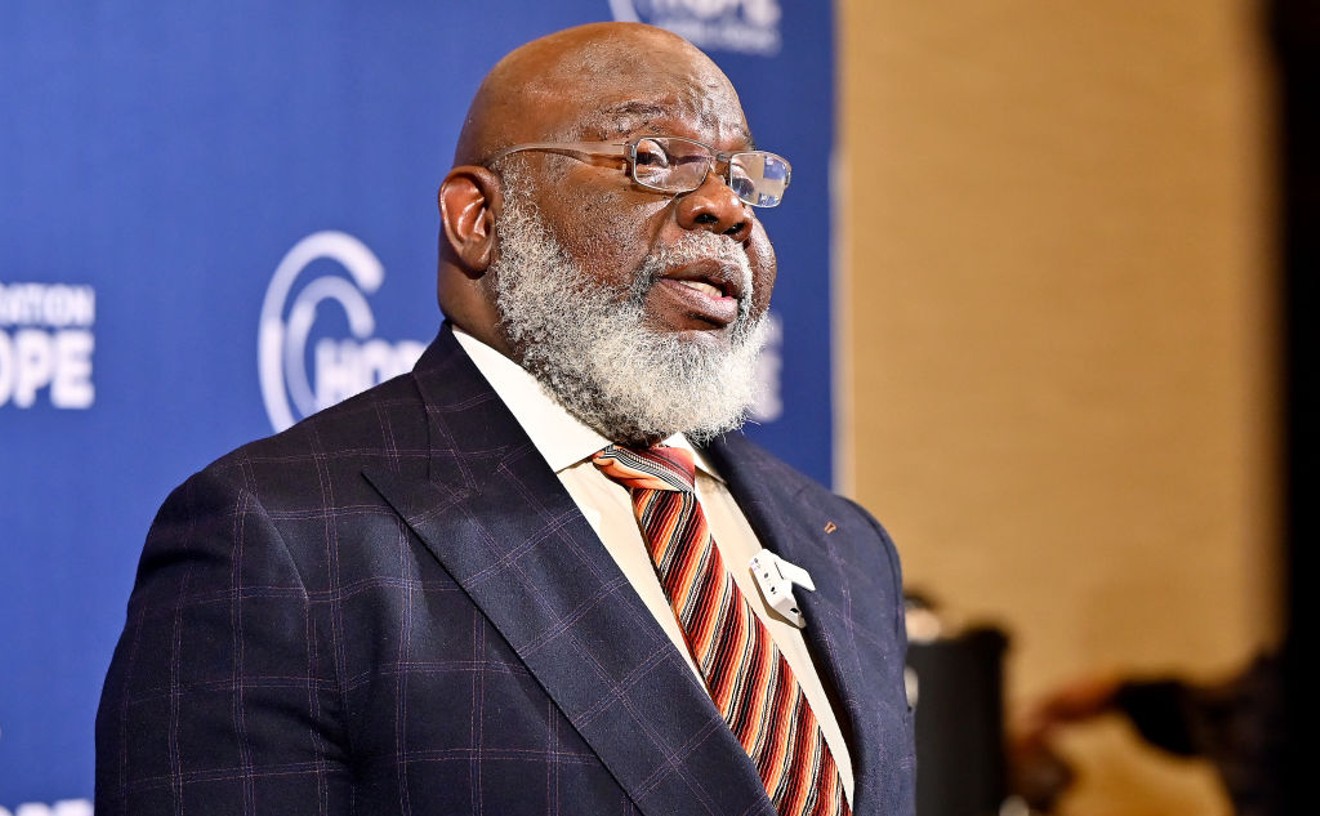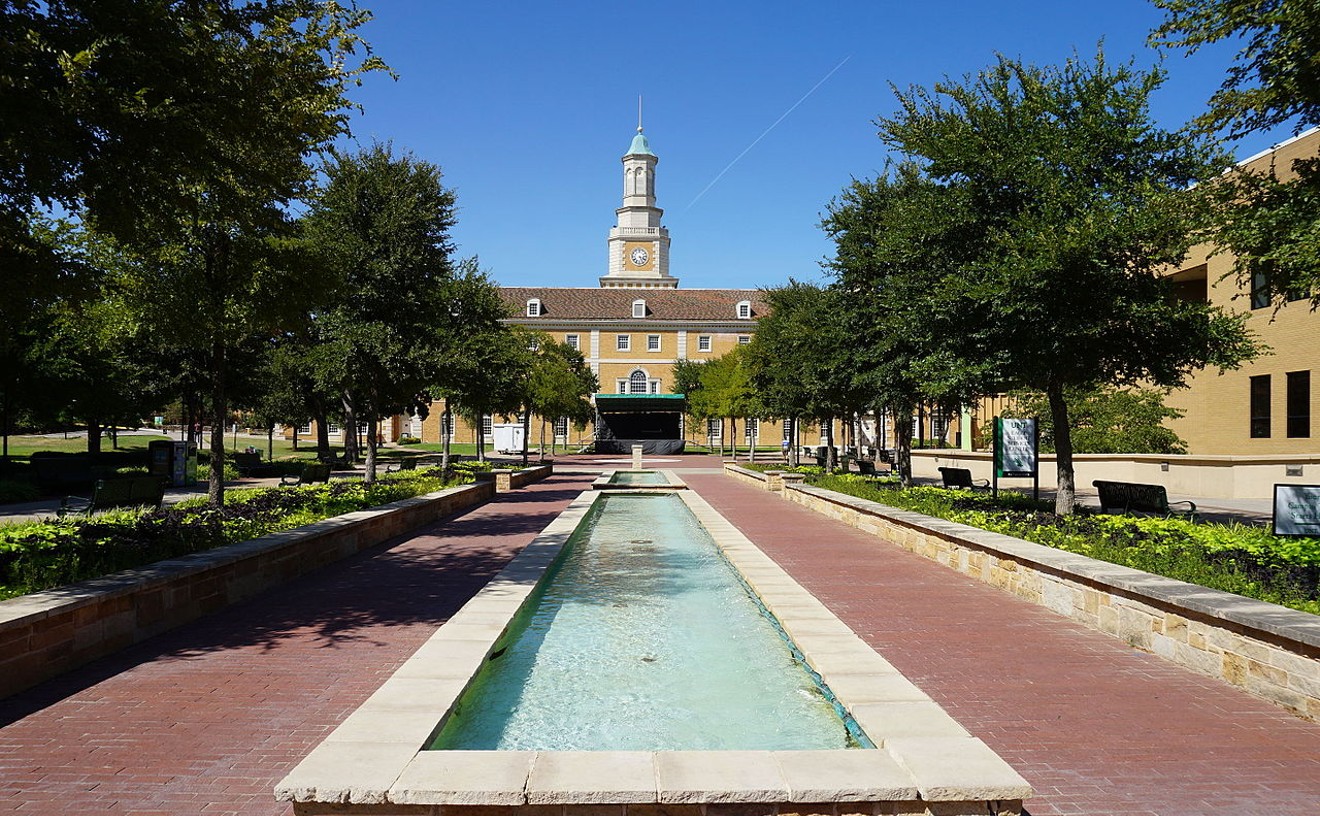"She had nothing to do with it," July recalls of Payne, who he thought of as his "baby sister." The shooting had nothing to do with him, either, but he realized that those bullets were intended for people like him. "She got caught in the crossfire. She lost her life for nothing."
Now 25, July has long since come to see the light and taken to the pulpit for the Libertarian gospel. He posts regular web videos in which he rants about the economy, racism and police violence, many of which have gone viral. One recent video in which he accused Bernie Sanders of being an "economic illiterate" earned him an appearance on Fox News, and Glenn Beck is such a big fan that July has been invited to speak on Beck's The Blaze on multiple occasions.
Far from the perception some people have of young Libertarians, July's beliefs don't boil down to, as he puts it, wanting "to smoke weed, conspiracy theories and inside jobs." It has to do with recognizing the negative impact that a bloated government has on its citizens. "I've never been a guy to set out to convert people to being Libertarian," he insists. "I'm trying to get people thinking more critically about things, get your mind going and be able to see right through all of it." And now, after moving back to Dallas from South Texas earlier this year, he's focused his efforts on spreading the same message through music with his rap-metal hybrid BackWordz.
July grew up in Oak Cliff, and his parents split up when he was young, at which point his father fell out of the picture. By the time he was a teenager, July was mixed up in gang activity, so when he was a freshman in high school, his mother sent him to live with his grandmother in Arkansas. It didn't help: He was only 15 when he got charged with his first felony, for assault and battery.
His mother brought him back to Dallas, but the problems continued, and he was kicked out of school after school. Even taking a bullet to the knee, which almost ended his track career, didn't motivate him to change his ways. But when he and his girlfriend narrowly escaped a drive-by shooting outside track practice his senior year, he began to realize that his actions could put the people close to him in danger as well. And then Payne was killed.
"She was younger. I considered her a baby sister," July recalls of Payne, whose story was later chronicled on A&E's The First 48 TV series. "I'd seen so many other stories like this; I'd lost family members through this foolishness," he adds. "There were people losing their life out there daily — people that I knew, people that I gang banged with or gang banged on — for no reason." Don Hardge, who was charged with Payne's death, was sentenced to 16 years in prison in 2011.
July, who eventually transferred from Memphis to Texas A&M in Corpus Christi, began to see how life could be different as he threw himself into his schooling. While he majored in communications, he developed an interest in economics. "I started reading up on African American economics — Thomas Sowell, Walter Williams, these guys — and I was like, 'Wait a minute, what exactly am I doing?'" July says. He grew up in a staunchly Democratic family and even campaigned for Barack Obama, but, he says, he finally began thinking for himself: "I went from being a far lefty to — well, I can't say a far righty because I skipped right over that."
His conversion to Libertarianism had everything to do with his desire to see the lives of his fellow African Americans get better. He suddenly found that he couldn't place his faith in the government, much less expect it to cure his problems or those of his community. "As I learned more about [African American] history, I could see the connection with our oppression because the government and extensions of our government had facilitated it from day one," he says.
Bernie Sanders, The Economical Illiterate #1Bernie Sanders, The Economical Illiterate: Production and Artificial Pricing
Posted by Eric July on Tuesday, September 8, 2015
While he was studying in Corpus Christi, July — who had previously been a rapper under the name YG Ripple — became increasingly involved in the hardcore and metal scenes there and in San Antonio. After first playing keyboards, he took up metal vocals for the first time with a band called Fire from the Gods. "I grew up listening to the Lauryn Hills of the world, Nas and stuff like that," July says. "So I'm more conscious in my approach and my lyricism. Mix that with the heavy stuff and not many people are doing that."
Toward the end of his time with Fire from the Gods, July began to work more political topics into his lyrics, namely with a song called "The Capitalist." After a friend from a band in San Antonio called Splitting Arteries connected him with the musicians who later formed BackWordz, he finally brought all those pieces together — the rapping, the metal screaming and the political discourse, which he refers to as "street hop." This year the band has released a handful of songs, each with their own music video, including a cover of Eminem's "Till I Collapse."
While he's careful to point out that his band members don't necessarily share his political views — "That's the beauty of it," he says — July singles out the band's most recent track, "Utopias Don't Exist," as the fullest realization of his vision. "'Utopia' is talking about some pretty hardcore stuff. I'm criticizing the Black Lives Matter movement and I'm blatant about that," he says. "Another hashtag, now blacks mad," goes one lyric in the song. "Get up in arms when a cop do it/But don't even bat an eye when one of us shooting."
But while July says there "will be skeptics out there," he says the response to BackWordz has been more positive than he'd expected: "I don't get as much pushback from the music as from the videos," he admits.
The most important thing for July is that his music now echoes the message he's tried to convey in other areas of his life. Even as his political videos have garnered him more attention, including an appearance on Fox & Friends last month to talk about economics, he's been careful to maintain control of that message. "People had been calling me in to talk about these videos, but I would decline," he says. "If I'm only getting called up there to talk about race — like, 'Let's get a brother on there to say that because we can't' ... I don't want them to use me as their mouthpiece. That's not happening."
Since moving back to Dallas last March, July has also tried to focus efforts on an organization called Minorities Seeking Solutions, which he set up with some old friends from his gang days. Aside from hosting events such as a discussion on the abortion rate among African Americans in the city, they hope to reach out to members of the community, particularly young males in whom July sees a reflection of his younger self. He sees people "who had potential to be great and do something with their lives," but who don't have a male role model and instead seek them out in the streets. It's kids like that who wind up caught in the crossfire — crossfire that July managed to escape, but Payne didn't.
"More than anything what I want is to get African Americans to look in the mirror and understand how much power they have, rather than expecting the external to change," July says. "I'm not saying we don't get the short end of the stick ... whether it be police brutality or when it comes to the justice system. But before we can attack these issues we got to correct ourselves."


